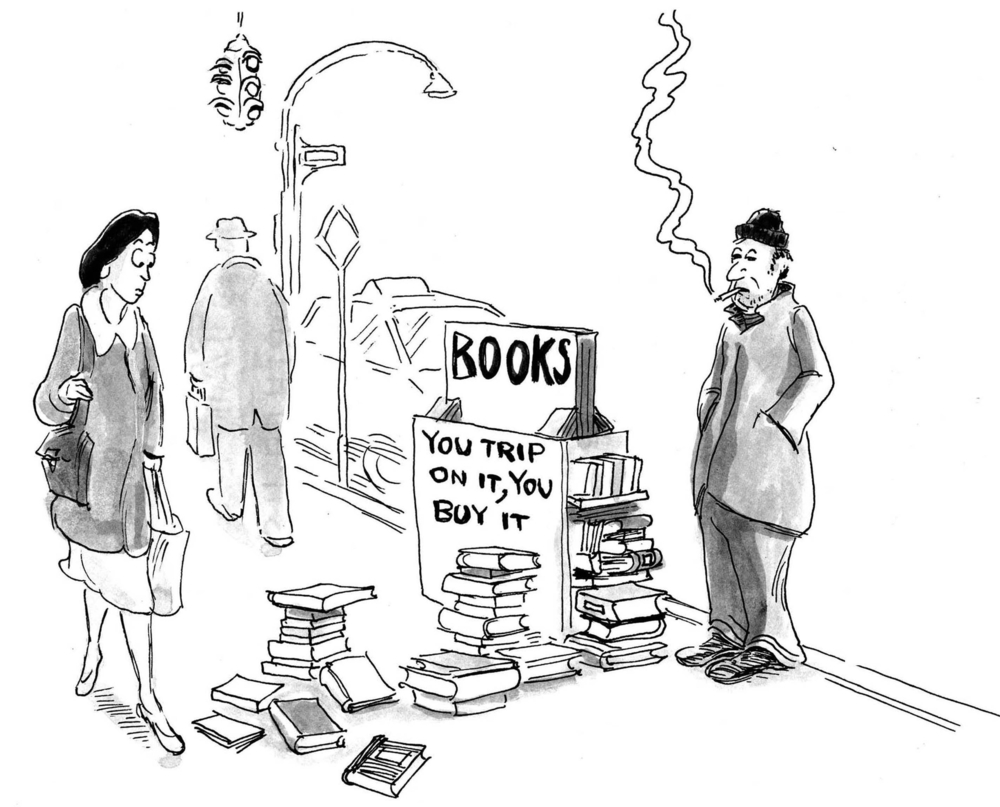We know. You hate the word “sales.” It makes your palms clammy and it takes the fun out of being an author.
We get it. Really. It’s not easy selling yourself, a product, ideas, or a movement. It’s darn tough. I mean you had the vision, the least your book could do is sell itself. Stephen King doesn’t have to schlep his book hoping someone will pick it up and love it. Why should you? And let’s not even start with that E.L. James.
Well, as an author you’d be correct in detesting the word “sales.” But you’re not an author. That’s right. Authors are the folk who don’t need or care about making money from their book and we gather that’s not you. If it is, this particular blog wasn’t written for you.
You are an authorpreneur. You wrote your book to launch your writing career. Careers aren’t built for fun alone. Careers are created to help you profit at something you enjoy. You wrote your book to serve as a tool. As such, sales are an important piece of your success.
Here are 9 tried and true tools for the authorpreneur:
1. Amazon
Amazon.com makes your book accessible to the masses, especially if your book isn’t carried in brick and mortar bookstores. Go the extra mile and create an author profile page. Use Amazon strategically, especially as it relates to reviews. Encourage your fans to post reviews on Amazon. Positive reviews on Amazon are one of the best sales tools you can have.
2. Events
Trade shows, book fairs, writers’ festivals, and conferences are terrific sales opportunities because they produce direct-to-reader sales. Try to schedule at least one event a month, two to four in the first year of your book is ideal. We periodically cruise www.eventbrite.com for events that might interest us. The Business Journal, your local paper, and universities in your region are also helpful.
3. Blogging
A well visited blog can be an authorpreneur’s best friend. It’s a perfect recipe for generating book sales. It shows your expertise, not to mention your passion. It’s also effective in networking, which also creates good word-of-mouth for your book. Other ways blogs are powerful? Through blog ads and guest blogging. Here’s a fantastic article about ways to use your blog as part of your marketing strategy.
4. Google Alerts
Consider Google Alerts your own personal private investigator. Use Google alerts to track events where you should have a presence, your book’s topic, your book’s title, and questions important to your audience. Research keeps you ahead of the sales game and using Google Alerts are the best shortcut available to you.
5. Press Releases
Press releases when timely are snazzy. Include links within them and seek opportunities to tie them in with national stories that are current. The trick is to choose a title that pops and will prompt immediate interest. Try not to make your press release about you, but about the problem your book solves.
6. Twitter
You know how passionate we are about Twitter. If you’re on Twitter — great! As a sales tool, you can use Twitter to direct traffic to your blog, website, or link to articles about your book. But be careful not to dominate the Twitter-sphere with too many links to your book stuff. Use it to network, research, and to plug other authors.
7. Website
You need your own website. It’s one of the most powerful sales tools you can have. You only need five pages: Homepage, About the book, Contact, Events, Ordering Info. Your website is your book’s primary home address. If it has no home, your audience won’t find you. Simple. Strategically, provide links to other resources, excerpts from your book, links to your social media accounts, and post book reviews on your website.
8. Presentations
Anytime you can read your work, share your knowledge, and provide useful tips to your audience, you’re in an ideal sales spiral. Seek opportunities to read your work at libraries, bookstores, conferences, and at readings. Always carry at least ten books with you. In the first year of your book’s release, try to be a speaker at an event as much as possible — once a month is ideal.
9. Freebies
Freebies are different for every author. For example, children’s books authors use stickers or coloring pages as freebies. Freebies can be anything from recipes, tip sheets, sample chapters, or a memento meaningful to your book topic. Freebies are your tools to attract buyers to your table or website and to introduce newbies to your material.
So there it is! Here are our sales tools for your book marketing toolkit that are virtually foolproof. What’s missing from the list?


Stephen King.
This is a useful list for ANYONE who will be publishing a book – whether it is self, indie, or regular publishing. Because unless I am Anne Lamott, I am probably going to have to do some or maybe most-to-all of my own marketing for my book, even if I am going the “regular publishing” route. Thanks for making this list that has some extras that I have forgotten, such as presentations and press releases.
As for additional items, maybe doing a course online & Goodreads or other online library websites.
Thanks!
Monique
@moniqueliddle
Love those additional items. We know several authors who have been successful with courses. Goodreads is also a powerful tool. Fantastic point about ALL authors having to do their marketing. You couldn’t be more right on. Thanks for the comment Monique!
Thanks for the correction Stephanie!